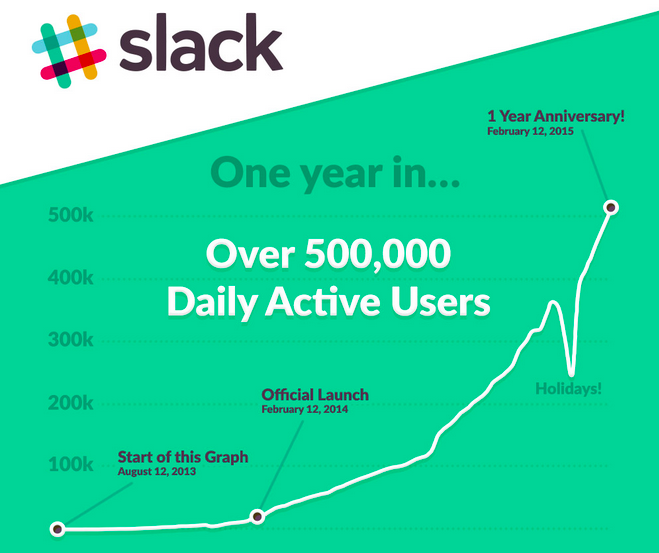Last week, we wrote about the #1 mistake everyone makes when creating an infographic. We went against the common advice of starting with your data to pick infographic topics. In fact, we said you should do the opposite and forget about your data.
Today, we’re going to dive deeper and present 3 powerful question that can help you pick your infographic’s topic.
1. Why should I care about your infographic?
I have an infinite amount of information available to me at a touch of my finger via the internet. Heck, I can barely keep up with my Facebook and Twitter feed and these are from people I care about and respect.
So let me ask you this again: why should I care about your infographic?
The honest truth is, most of the time, I don’t give a damn.

Frankly, my dear, I don’t give a damn.
How do you make people give a damn? Your infographic topic needs to help your audience solve a pain or problem. It needs to deliver value to your audience.
Remember, connecting with your audience isn’t about displaying your product/service or your data. It’s about their needs. Put yourself in their shoes and figure out their needs, their problems, and their areas of interest.
If you are having trouble finding problems to solve, you’re focusing too narrowly. You should go beyond the immediate boundaries of your product/service and look at problems from a wider lens.
For example, while Venngage is an infographic tool, our content strategy isn’t focused on solving infographic problems only. Infographics is a small subset of the “content marketing” field, which in turn is a subset of the larger category of “web marketing”.
We try to expand our stories to cover a wide range of problems related to content creation and web marketing.
Another example is KissMetrics. While their product is a web analytics tool, the infographics and content they create go beyond what you would traditionally call, “web analytics”. They know that their target audience, web marketers, have a wide range of problems beyond analytics and conversions.
If you take a look at their infographics (check out a sample of their infographics below), you’ll see insightful content on social media, SEO/SEM, design, email marketing, blogging, Youtube marketing, PR and much more.
For good measure, I’m going to go over some examples of stories people will not likely care about. I’m doing this not to mock anyone (we’ve made the same mistakes, trust me) but because we see it so much we feel that some negative examples will complement the positive ones we have above.
“Hard” sell product infographics, where the product is the center of infographic usually do not work well as an interesting story.
I’m not talking about a product or services brochure. All businesses should have marketing assets about their products and services.
I’m talking about doing an infographic that is all about your product and its features with little thought on the question above (Why should I care?) and expecting people to engage with it.
The “new release” or “milestone” infographics also fall into the “not-so-interesting” category (most of the time). The thinking usually goes, “we have a new 8.2 release with some new features – let’s do a press release, create an infographic and pay some PR firm money to push it out!”
Then, crickets….
No one cares about your 8.2 release because that isn’t a story that delivers value.
How about milestones? People love milestone infographics.
In general, most internal milestones are not good stories by itself, because they are usually self indulgent and self congratulatory and delivers little value to the reader.
You got 5000 clients? Good for you. Why should I care? (This is not to say you shouldn’t do milestone infographics, but you need to ask the important questions to better position it. And yes, you can create them for your investors and stakeholders, but don’t expect others to give a damn.)
I just saw one by Slack last week on their breakout year. Slack has had incredible growth. It was a celebratory infographic.
A bit vain, yes. But did I care about it?
I have to admit, I did.
The only reason this worked, (and this is an exception) is because Slack’s growth is so remarkable that it challenges us to rethink what a normal billion dollar startup growth trajectory is.

Honestly, 99% of milestones are not news worthy like Slack’s. Regardless, a lot of opportunity was lost in a topic that focused on the growth instead of the value it could deliver to potential clients.
I was sent a note by a very accomplished CEO on that exact infographic saying that while he was impressed by the growth and the PR buzz, he admitted that he did not get what was compelling about the platform.

Be honest with yourself. Pick your target audience. And ask why they should care.
2. Will your infographic topic be relevant in 1 year? 10 years?
This is the test of longevity and relevance. Ask yourself, will your infographic be relevant in a few years? Or are you creating something that is a flash in the pan that has just enough novelty to be link bait for a few days?
In the content marketing world, this is called “evergreen” content. The value of the content lives on for a long time. If you answer the first question well, your story will likely be of great value to people for a long time.
For example, anything on Seth Godin’s blog is like that. You can read something from 2006, and it’s relevant today (the context may have changed but the insights live forever).
Another great example is Unbounce, a marketing tool for optimizing landing pages. Unbounce’s CEO, Rick Perreault, recently revealed the effectiveness of his content–“something we wrote in January 2010 still drives customers today…”
The upside of stories that lasts? It’s an investment that keeps paying dividends.
What doesn’t last a long time? Link bait stories tied to a specific event.
One of our first failed infographic attempts was a “Steve Jobs Death Anniversary” infographic.
Yes, we tried to capitalize on a great man’s death. We released it on the anniversary of his death and hoped to milk his fame and people’s love for him into clicks and signs ups.
It didn’t work. It didn’t last. (We are sorry, Steve, we were bad people.)

Just to be clear, I’m not saying creating content around news events is a bad thing. But if you have limited resources, focus on “evergreen” stories.
Ask yourself: will the infographic you create be relevant in 1 year? Or even better, 10 years?
Invest in an infographic that will pay dividends long after its release date.
3. Are you challenging your audience?
Does your infographic make your audience rethink conventional wisdom? Does it challenge your audience’s beliefs, behaviors and belongings?
Or are you just churning out content that is preaching to the choir?

I’m a big fan of content that boldly challenges the status quo and backs it up smartly. Like our article on the #1 Mistake Everyone Makes When Creating Infographics. We told people to forget about the very thing they cherish the most, their data.
Gary Vee, a social media celebrity, is the master of this. Most of his best articles are the ones where he challenge’s our beliefs and behavior. Whenever I need a kick in the butt, I read Gary Vee.
For example, he recently questioned the need to hire a social agency, the exact type of business he runs. That would be the equivalent of us writing an article, “You don’t need infographics”.
This is the opposite of self help literature, which makes you feel nice about yourself, and is full of “mutual admiration society” talk. If your content doesn’t take your viewers out of their comfort zone, it’s likely not effective, or a scam.
Thanks, OprahHow do you come up with stories that challenge people? A simple way is to ask the question from a different point of view. Gary Vee does this all the time.
Example: everyone knows Superbowl ads are really expensive. In fact, it’s the most expensive TV time you can buy. But it is only expensive when framed from the perspective of “cost”.
When you look at it from the perspective of the “return” (i.e. the benefits from having 100M people see your brand), it is cheap. Framed that way, Superbowl Ads Aren’t Expensive Enough is a much better read and delivers good insights to how TV marketing works.
Another thing you can do is to be authentic and honest with yourself and the industry you work in.
Our industries are full of bad practices and things that are taken for granted that can be improved or challenged. Part of this means you have may have to call out people’s bad behaviors.
In this article, he calls out “wantreprenuers”. He uses strong language, that’s his personal style, but he speaks truth.
Push the envelop. Challenge your audience. Question the status quo. Make people think. And they will love you for it.
Need more help coming up with good infographic topics? Read our in-depth guide:








































